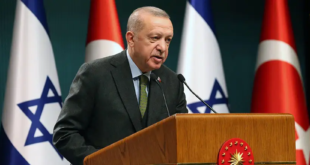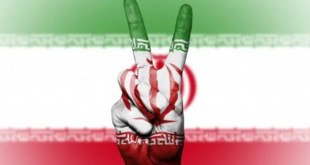President George W. Bush sought on Wednesday to rally support for the war in Iraq, appealing to Americans on Independence Day for “more patience, more courage and more sacrifice”.In Iraq, a US soldier on board a military helicopter was killed when the aircraft was forced down in Ninewah province in the north of the country, the military said.
In a Fourth of July holiday speech at a West Virginia Air National Guard base, Bush said “we all long for the day” when there are fewer US troops in Iraq but insisted that more time was needed for his Iraq strategy to work.
“Victory in this struggle will require more patience, more courage and more sacrifice,” Bush said.
With approval ratings at the lows of his presidency, Bush is under increasing pressure for positive results from a US troop build-up in Iraq as he seeks to prevent further defections by fellow Republicans sceptical of his handling of the war.
In Baghdad, officials said Iraq’s parliament might take a week to start debating a draft oil law, as complaints from Shiite and Sunni Arab politicians and Kurdish authorities signalled its passage could be rocky.
The United States has pushed Iraq for months to speed up passage of the landmark law and other pieces of legislation seen as vital to curbing sectarian violence and healing deep divisions between majority Shiites and minority Sunni Arabs.
Washington has also been urging Shiite Iran to do more to stem violence in Iraq. This week, the US military said the senior leadership in Tehran was aware Iranian operatives were involved in training and supplying Shiite groups with arms.
Iran has dismissed the accusations, but in a sign of diplomatic progress, Iranian Deputy Foreign Minister Abbas Araghchi said Iran would be available to hold a second round of discussions with the United States over Iraq.
That would follow talks in Baghdad on May 28 between the two countries’ ambassadors to Iraq in what was the most high-profile meeting of the two enemies in almost three decades.
 “If the Americans want to continue negotiations we are available. We told them our position and reminded them of their responsibility as the occupier,” Araghchi said during a visit to South Africa.
Presentation of the draft oil law to parliament after the Cabinet approved it on Tuesday was a big step towards meeting a key political target set by the United States.
But Mohammed Abu Bakr, head of parliament’s media office, said the law had first to go to the energy and oil committee.
“We need seven days to get the draft on the agenda of parliament to discuss it,” he said.
The oil law is intended to ensure a fair distribution of the world’s third largest oil reserves, which are located mainly in the Shiite south and the Kurdish north of Iraq.
Sunni Arabs, the backbone of the insurgency, live mainly in central provinces that have little proven oil wealth and have long feared they would miss out on any windfall.
Shiite Prime Minister Nouri Maliki should have enough support in the 275-member parliament to get the law passed. But in a sign of trouble, the movement of anti-American Shiite cleric Moqtada Sadr said it had rejected the draft.
Sadr’s bloc, which has 30 parliamentary seats, said the law must state that no contracts may be signed with firms from countries with troops in Iraq, an official said.
The Kurdistan Regional Government (KRG) said it had not seen nor approved the draft while Sunni Arab politicians voiced concern about foreign domination of the industry.
Iraq’s Cabinet originally approved the draft in February but faced stiff opposition from Kurdistan, which felt it was getting a raw deal.
The draft decides who controls Iraq’s reserves and aims to provide a legal framework for foreign investment.
Parliament is running out of time to debate and approve the oil laws and other measures aimed at ensuring Sunni Arabs are cemented in the political process. It has extended its current session to the end of July, before legislators take a month off.
That leaves little time before the US military commander in Iraq, General David Petraeus, and Ambassador Ryan Crocker have to present a much-anticipated report to Washington in the middle of September on Iraq’s security and political progress.
 Eurasia Press & News
Eurasia Press & News



